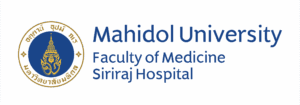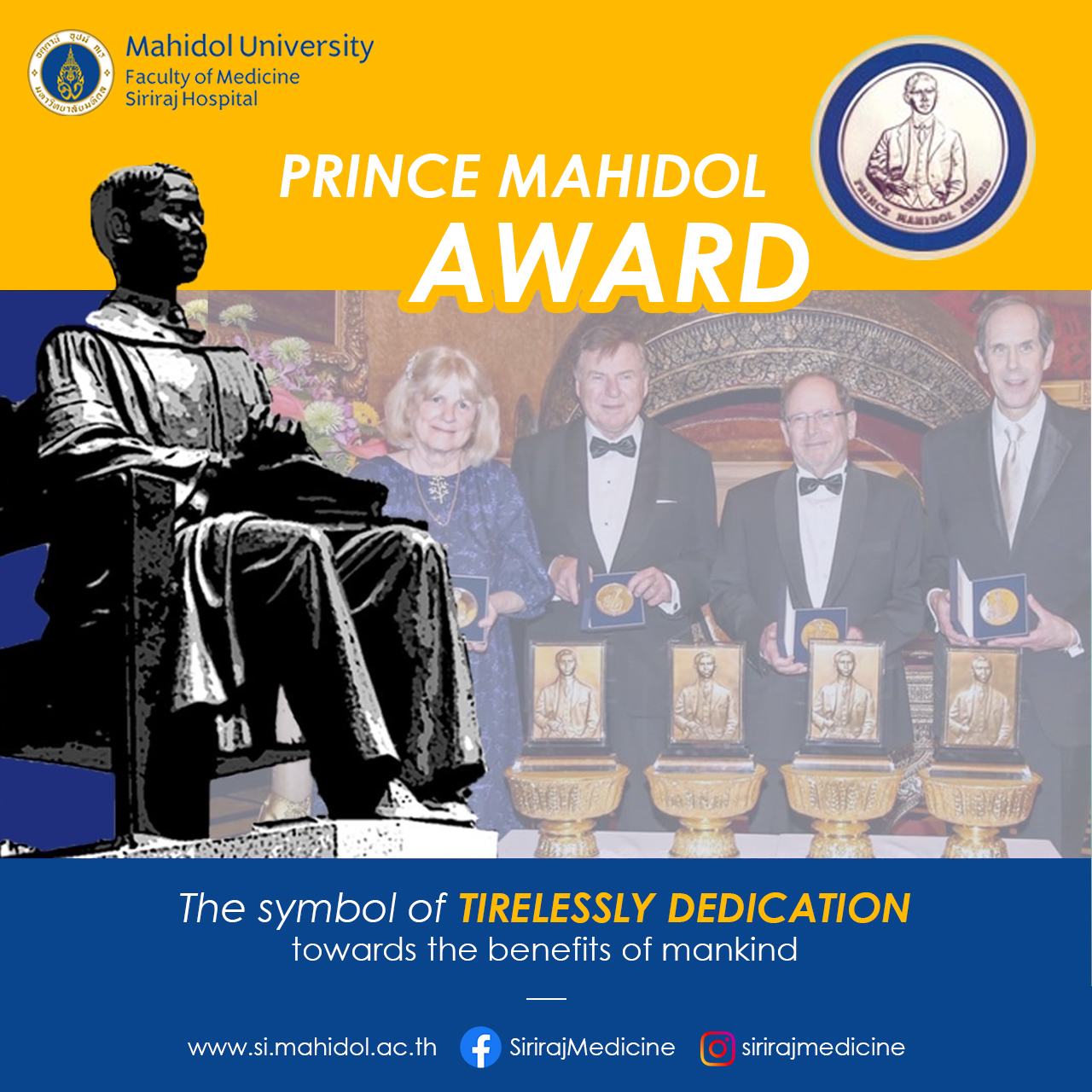The Prince Mahidol Award The symbol of tirelessly dedication towards the benefit of mankind!
Prince Mahidol of Songkla (1892-1929) played an active role in laying the foundations for public health and modern medicine in Thailand, with a strong determination to raise the standard of living of all Thais. As a medical doctor himself, he represented the government of Siam in negotiations with the Rockefeller Foundation to secure professional and monetary support for Siriraj. Additionally, he improved the curriculum and sent Thai doctors abroad to study on his own dime. His work and way of life served as an example of what we can all do to better the world and motivate others to do the same.
The beginning of Prince Mahidol Award
To carry on the HRH Prince Mahidol’s altruism and legacy, the Prince Mahidol Award (PMA) was then established in 1992 by royal permission of His Majesty the late King Bhumibol Adulyadej, King Rama IX of Thailand, on the occasion of the 100th anniversary of the birth of HRH Prince Mahidol of Songkla. The award has the objective of honoring His Royal Highness and recognizing individuals or institutions with outstanding contributions in the fields of medicine and public health. The award is run by the Prince Mahidol Award Foundation, established in 1991. King Rama IX graciously granted Royal patronage to the foundation, currently chaired by Her Royal Highness Princess Maha Chakri Sirindhorn.
The foundation is responsible for the Prince Mahidol Award as well as the promotion of the memory of Prince Mahidol of Songkla – the Father of Modern Medicine and Public Health of Thailand.
The Prince Mahidol Award Categories
The Prince Mahidol Award is an international award given annually in two categories to international personalities or organizations, including:
- In the field of Medicine: for outstanding performance and/or research in the field of medicine that benefits the global population.
- In the field of Public Health: for outstanding contributions in the field of public health for the sake of the well-being of the people.
The Prince Mahidol Award
The award consists of a medal, a certificate, and prize money (US$100,000). Prior to attending the award presentation event, which is held at Chakri Maha Prasat throne hall, Prince Mahidol Award laureates will visit the Faculty of Medicine Siriraj Hospital, Mahidol University, to pay respects to the statue of Prince Mahidol and learn more about HRH’s legacy.
The Prince Mahidol Award Criteria
An individual or group of individuals or an institution may be nominated by national medical or health authorities or by an individual or group of individuals in a nongovernmental capacity as candidates for the award. The candidates are screened by the award’s Scientific Advisors. They are then forwarded to the International Award Committee, which comprises several world-renowned experts in the fields of medicine and public health. The committee will consider them and make recommendations to the Foundation’s Board of Trustees, who will make a final decision.
From 1992 to 2022, 94 prizes were awarded, including 43 in medicine and 51 in public health! Five laureates of the Prince Mahidol Award of the year 2001, 2005, then proceeded to win the Nobel Prize in a later year. Five Prince Mahidol Award winners from 1997, 2001, 2003, 2005, and 2016 went on to win the Nobel Prize a few years after.
Last year, the Prince Mahidol Award in the field of medicine was conferred upon Professor Ralph A. DeFronzo, M.D., from the United States, for his exceptional and dedicated work that saved people from Type 2 Diabetes and saved millions of patients from chronic diabetic complications. And the Prince Mahidol Award in the field of public health was awarded to Professor Ian H. Frazer, M.D., from Australia/U.K., Dr. Douglas R. Lowy, M.D., from the United States, and Dr. John T. Schiller, M.D., Ph.D., from the United States, for their achievements in developing the HPV vaccines, which have been internationally implemented. The vaccines have prevented HPV infection, cervical cancer, and other HPV-related cancers and saved countless lives!



